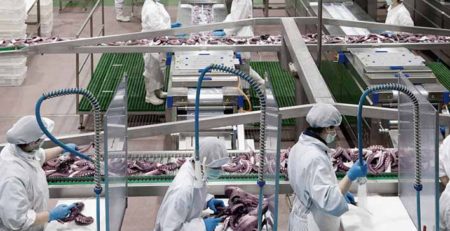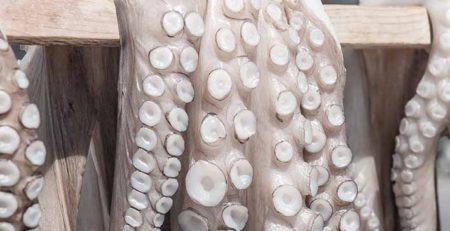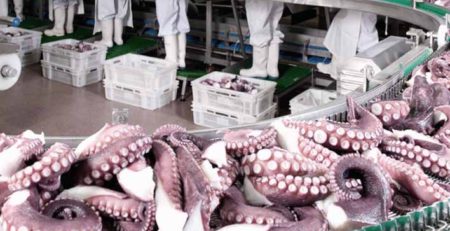An investment fund and a finance company bought Discefa, the largest distributor of frozen octopus
GED V España, a fund based in Madrid has made its debut as a private equity fund and has chosen the octopus as the target animal for its first investment commitment. The group successfully concluded the acquisition of a majority shareholding of Discefa, the largest company specialising in the transformation and distribution of high-quality, frozen octopus. It is a distributor of cephalopods with headquarters in Cambre, although three quarters of its turnover originates overseas.
The headquarters, management, and executive team will continue to be based in the city of A Coruña but ownership of the company that markets ‘El Rey del Pulpo’ has ceased to be Galician after the aforementioned private equity fund, with the help of the financial institution Oquendo, based in Madrid and a pioneer in offering alternative financing to Spanish small and medium-size companies, took 71% in a mixed operation in which both ownership and debt are shared.
Company management has been reluctant to provide information on the operation. Furthermore, although GED V España not only confirms the transaction but indeed boasts of it, the exact amount of the acquisition is a closely guarded secret, qualifying it as ‘confidential’ information.
The benefit
However, they have no such qualms when it comes to proudly broadcasting the transaction that enabled them to become majority shareholders of a company founded in 1982, which saw turnover as high as 62.3 million euros in 2015 and whose EBITDA (earnings before interest, taxes, depreciation, and amortisation) was 14 million euros in the aforementioned financial year.
With these figures, it is not surprising that the new fund claims that Discefa fully conforms to its investment parameters: ‘Medium-sized industrial companies with growth potential, leaders in their sector, and which are in the midst of an process of internationalisation.’ With regard to this latter aspect, the fund points out that currently 75% of Discefa’s turnover was generated outside Spain, in markets where the company has plans for strong growth in order to take advantage of the increase in consumption of its product recorded in recent years.
Larger size
And the intention is to continue expanding. Enrique Centelles, managing partner of GED V España, which led the operation, openly expressed his satisfaction at having bought Galician octopus: “We are very pleased to announce the acquisition of a majority stake in Discefa as this is the first transaction we have carried out with the new fund and our intention over the next few years is to help consolidate Discefa’s leadership in the domestic market, as well as boost and support its international expansion.” In this sense, “the objective must be to raise the quality of the product offered to the customers even more, in order to be the most competitive in the market we are targeting,” added Centelles in a statement. To this end, they will rely on “a very thorough and valuable proposal for the entire channel”.
The company continues to operate as before, serving customers that have, on average, been clients for 15 years
Sources from the GED V España fund clarified that it is still “too early to know anything about operational or organisational changes. GED has just acquired the commitment and no decisions have been made in this regard.” And so in Cambre, everything continues as before, serving customers that have, on average, been clients for 15 years, and serving them with its brands that possess ‘well-known prestige in their markets’, such as ‘El Rey del Pulpo’, ‘Fribó’, ‘Pindusa’, and ‘Algaravío’.
In the past, Discefa had a subsidiary in Las Palmas, which is now in liquidation. Although the company has not yet issued any confirmation, it is likely that the removal of these assets is linked to the expulsion of the Galician cephalopod fleet from its historic fishing grounds, as were first those of Morocco and then Mauritania, which marked a turning point for the port of Las Palmas, where the unloading of fish, and cephalopods for the most part, has plummeted.
The company sells octopus from a range of fishing grounds, both in Galicia (until last week in its closed fishing season and thus supply from the area was zero) and in Yucatán (Mexico), Agadir (Morocco), the Canary Islands, Cádiz, and other sites in the Atlantic. GED V clarified that this was its first transaction, but by no means its last. Will the next transaction occur in the fishing sector? “It may be in this sector or in another economic sector,” as long as it fits the profile of a leading and consolidated company, declare sources at the fund.




